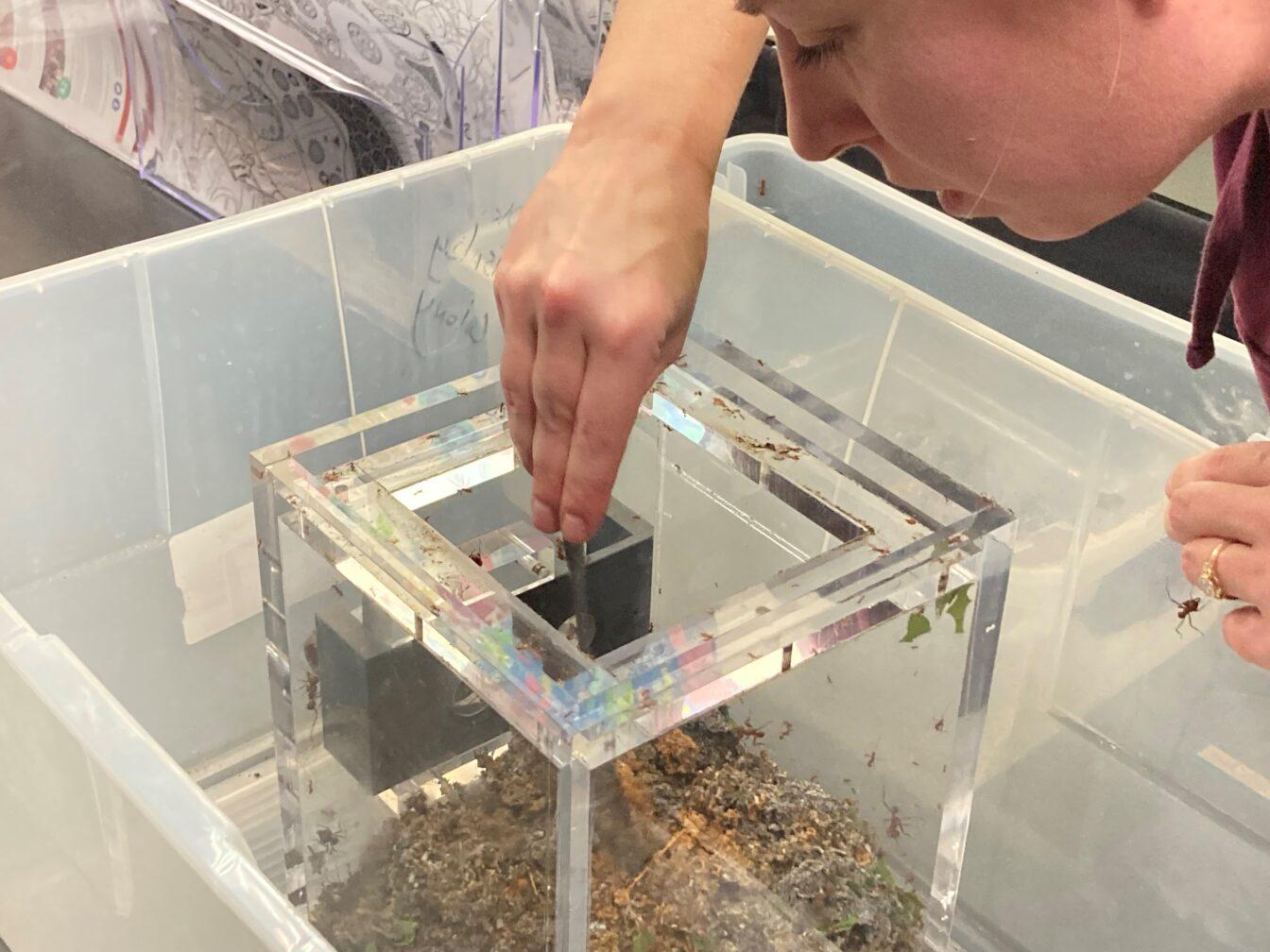The “Ants and Agriculture” exhibit in the Microbial Sciences Building closed Thursday with staff and students gathering to say their goodbyes to the ant colony.
Forty people watched as the Currie Lab manager Caitlin Calhoun removed the queen ant’s chamber from the colony’s case in the Microbe Place.
The Microbe Place, housed in the Microbial Sciences Building main lobby, exhibits some of the research within the department of bacteriology — including the leaf cutter ant colony. The ant colony exhibit opened soon after the Microbial Sciences Building opened in 2009. The Microbe Place has become a hub for students and staff to socialize or take a welcome pause from tasks.
The ant colony and the exhibit is managed by the Currie Lab which which studies the fungi, bacteria and ants of the colony. The ant exhibit colony’s constant farming provides ample bacteria and fungal samples for closer research, Currie Lab researcher Soleil Young said.
Biotech outreach specialist presents seminar on Xenos Paradox
Leafcutter ants rely on beneficial bacteria to destroy fungus-eating pathogens, Young said. In return, the bacteria enjoy a safe and humid environment. This symbiotic relationship is over 50 million years old and one of the oldest forms of agriculture in existence.
Professor of bacteriology, Cameron Currie heads the Currie Lab. Currie is moving his research to McMaster University in Canada to be closer to family and his Canadian roots, bacteriology department chair Katrina Forest said.
Infectious disease professor, Dave Andes will continue to study the antibiotic compounds produced by the colony’s bacteria. Applying discoveries about these compounds could lead to breakthroughs in human antibiotic treatments.
Preserving the game: UW football team, NFL form research partnership to study head injuries
“[The queen] will be moved to Canada to continue professor Currie’s research,” Forest said. “With this sendoff, we’re celebrating what we’ve had, while turning over a new leaf for the Microbe Place.”
A new exhibit in the Microbe Place will replace the ant colony, but the department hasn’t decided on the next exhibit.
“We’d like to know what [UW students and staff] would like to see,” Forest said. “We are open to ideas and suggestions.”


















